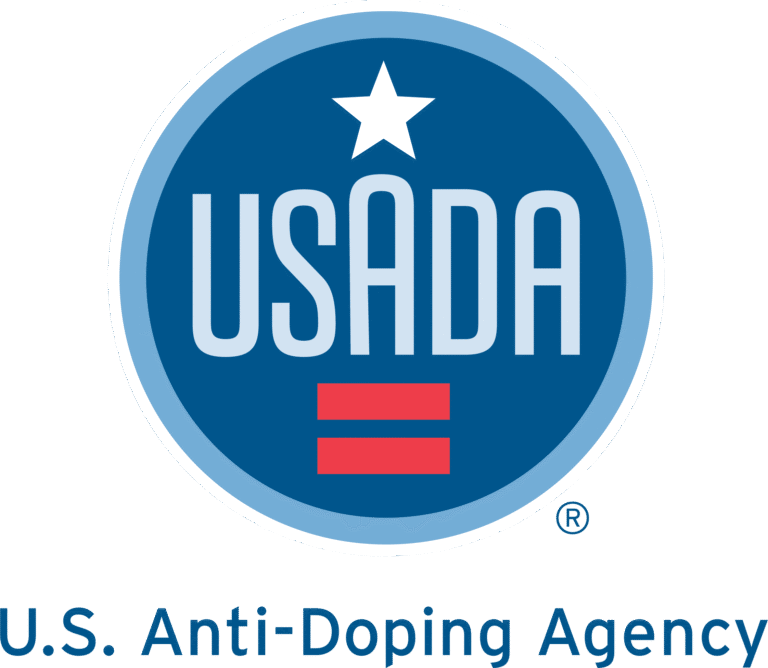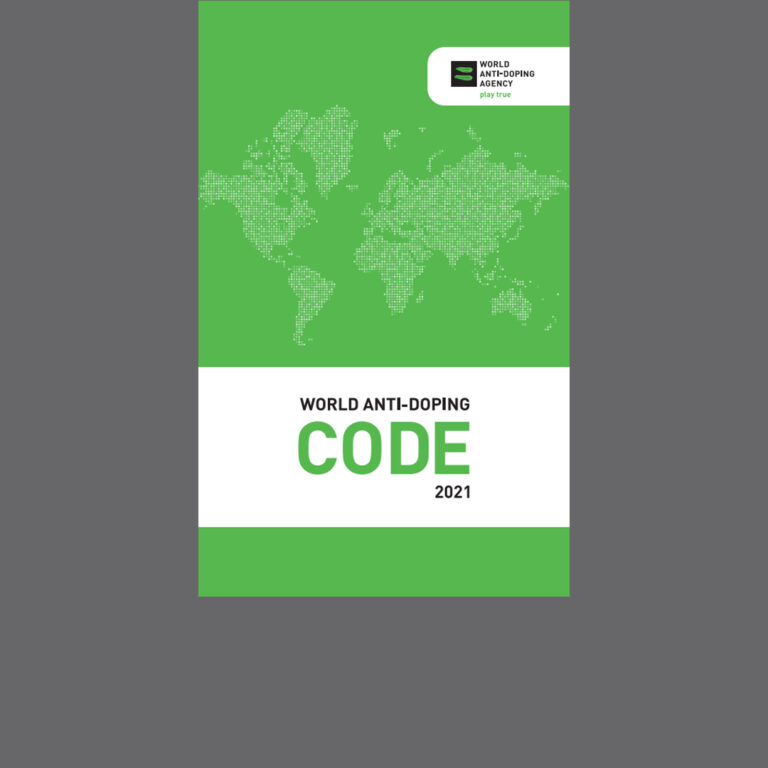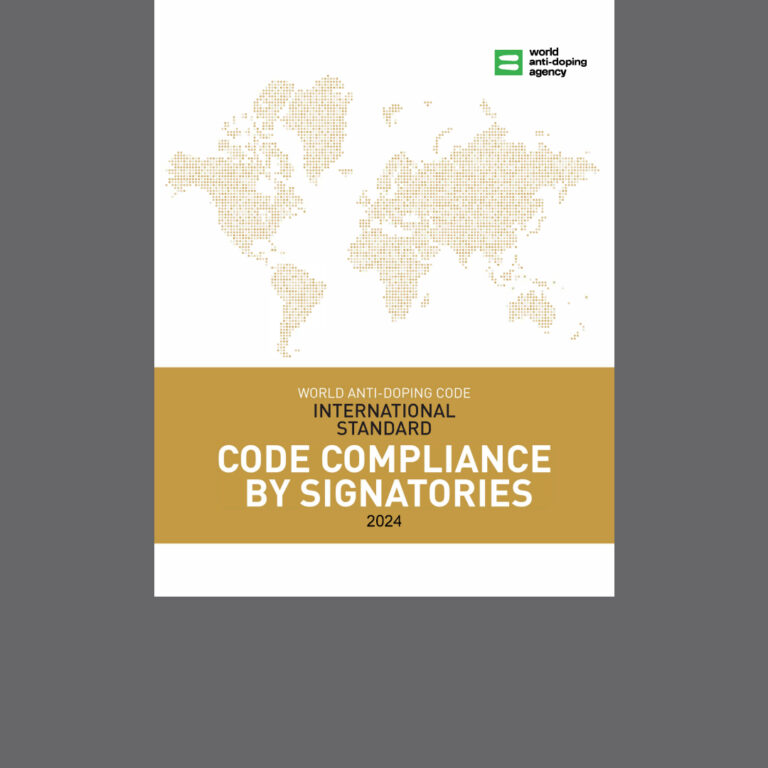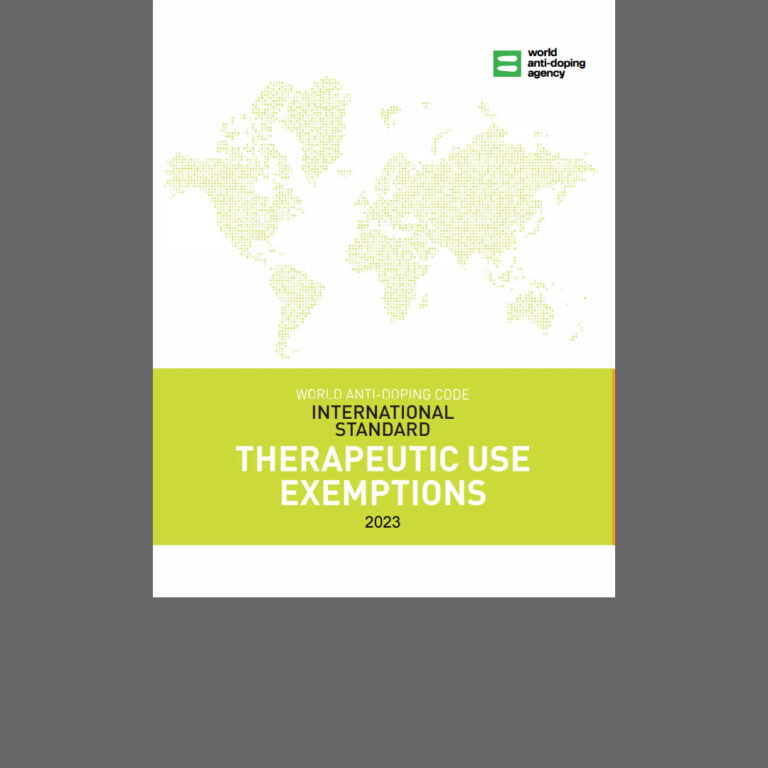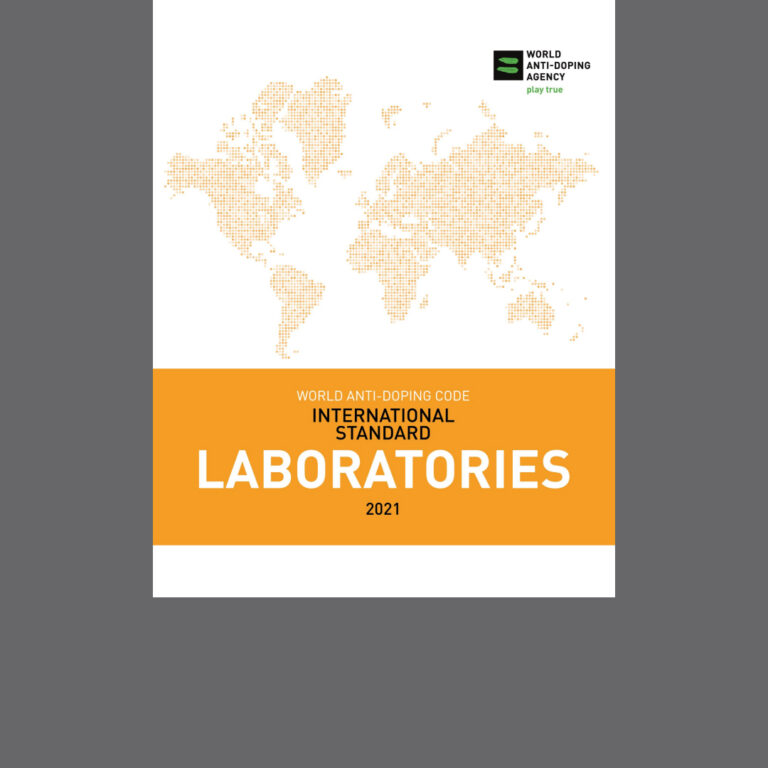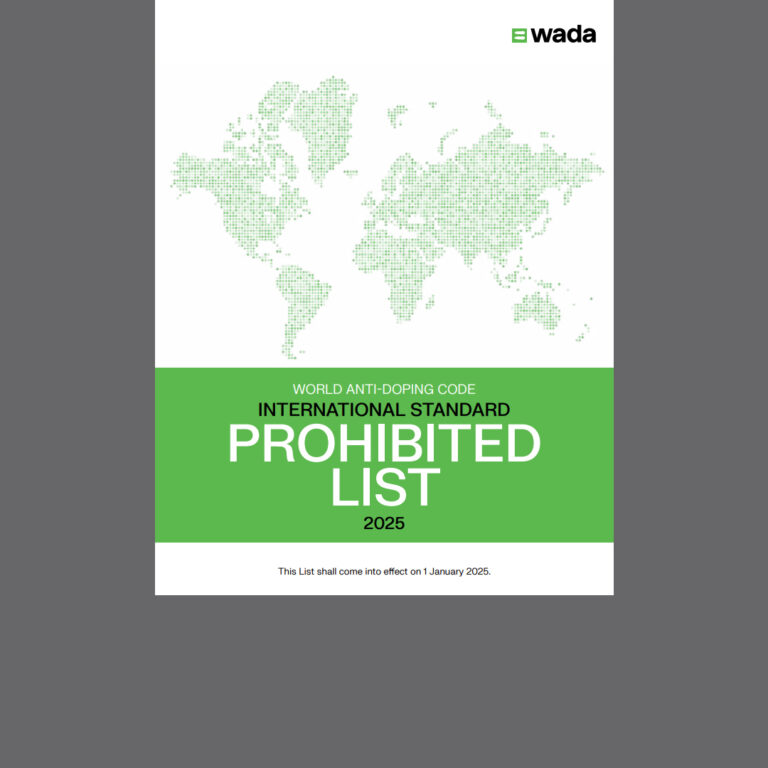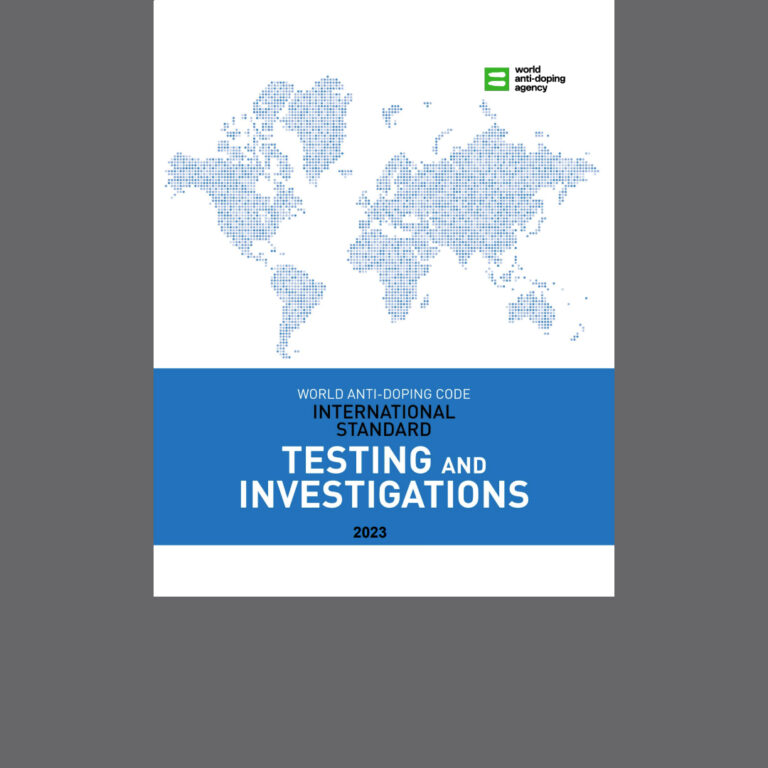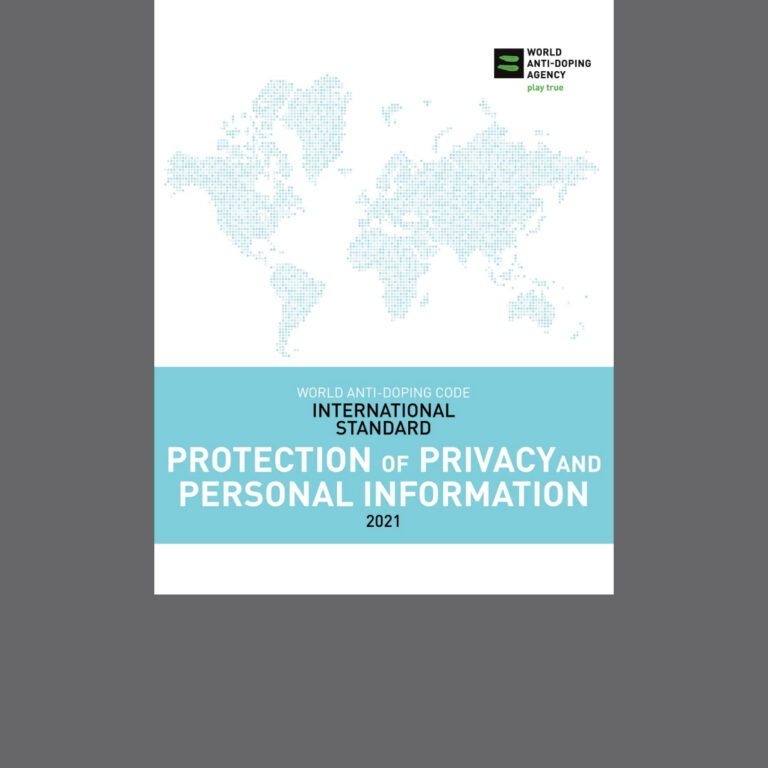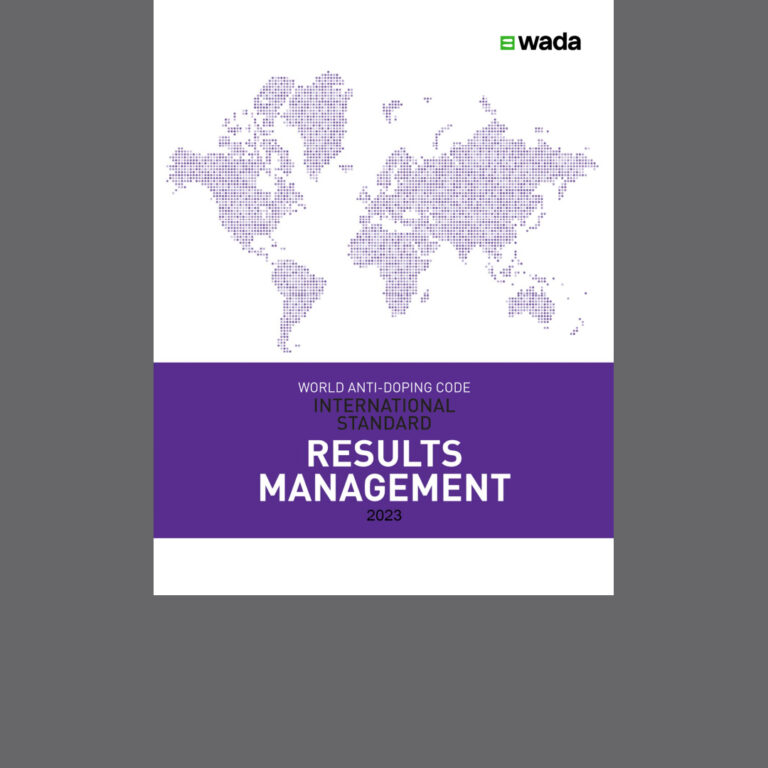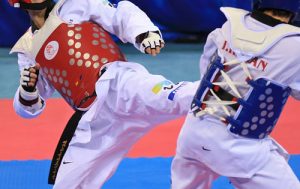

Upholding the Spirit of Sport
Mission
We champion athletes to achieve their dreams in a fair and healthy way and to inspire the world.
Core Values
- Lead with Courage
- Promote Integrity
- Prioritize Trust and Teamwork
- Inspire Respect and Responsibility
Independence and History
The U.S. Anti-Doping Agency (USADA) is recognized by the United States Congress as the official anti-doping organization for all Olympic, Paralympic, Pan American, and Parapan American sport in the United States. USADA began operations on October 1, 2000, and as an independent, nonprofit organization, is governed by a Board of Directors. Upon USADA’s formation, the original Board consisted of nine members, five of whom came from outside the Olympic & Paralympic family and four of whom (two each) were elected by the United States Olympic & Paralympic Committee (USOPC) Athlete Advisory Council (AAC) and National Governing Body (NGB) Council. Since 2003, USADA’s Board has consisted of 10 independent, experienced, and professional individuals who are free from any conflicts of interest, and who share the ideals and principles associated with USADA’s mission and core values.
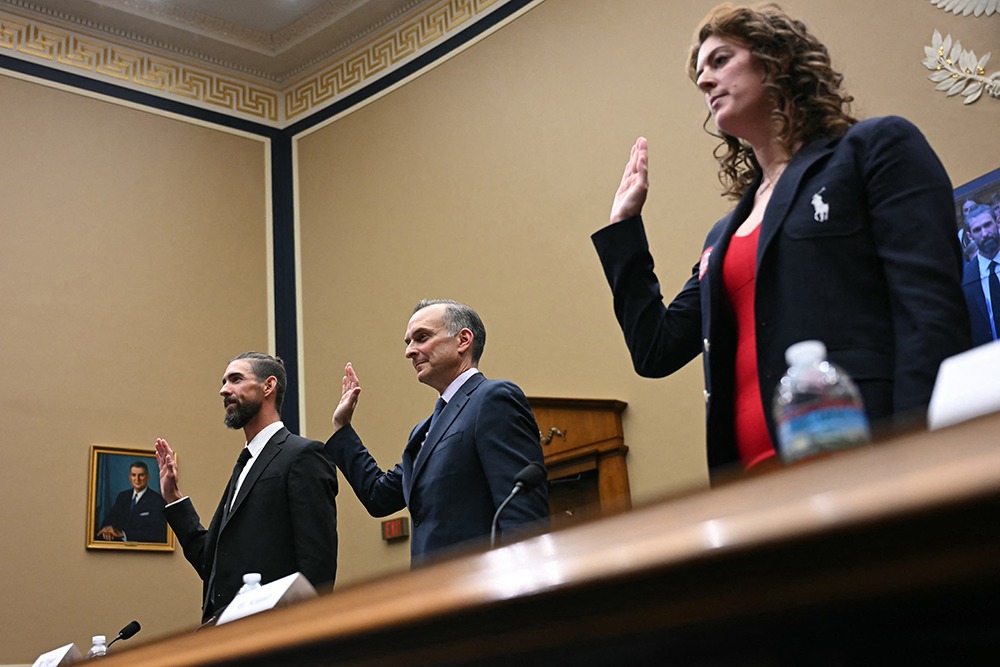
USADA was created as the result of recommendations made by the USOPC’s Select Task Force on Externalization in order to bring credibility and independence to the anti-doping movement in the United States. USADA was given full authority to execute a comprehensive national anti-doping program encompassing testing, results management, education, and research, while also developing programs, policies, and procedures in each of those areas.
USADA is a signatory to the inaugural World Anti-Doping Code (the Code), which harmonizes anti-doping rules across the globe. The Code was first implemented in 2004 and is updated around every five years. Since its inception, USADA has ensured the strategic execution of our mission and core values, with a primary focus on serving athletes with the best anti-doping program possible.
Over the years, USADA has allocated millions of dollars for cutting-edge scientific research aimed at understanding and effectively combating the use of performance-enhancing drugs. USADA has also collected and managed the results of thousands of anti-doping tests utilizing independent WADA-accredited laboratories that provide the most sophisticated analysis available. USADA’s efforts to protect clean athletes have been instrumental in numerous international investigations, including the steroid bust, Operation Raw Deal, and the BALCO laboratory conspiracy in San Francisco. USADA also led the investigation into systemic doping in the sport of cycling, primarily through its investigation of the US Postal Service Pro-Cycling Team Doping Conspiracy.
USADA continues to aspire to be a leader in the global anti-doping community in order to protect the rights of clean athletes and the integrity of competition around the world. USADA is based in Colorado Springs, Colorado, and employs more than 100 full and part-time employees around the globe.
Explore More about USADA:
USADA's Anti-Doping Programs
The U.S. Anti-Doping Agency (USADA) manages the anti-doping program for U.S. Olympic, Paralympic, Pan American, and Parapan American sport. To protect clean competition and the integrity of sport, USADA provides education, leads scientific initiatives, conducts testing, and oversees the results management process for all United States Olympic & Paralympic Committee (USOPC) sport national governing bodies, their athletes, and events.
USADA is a signatory to the World Anti-Doping Code and fully complies with the World Anti-Doping Code’s International Standards. Our anti-doping program is often referred to as the gold standard in the global anti-doping movement and we are at the forefront of the fight for clean competition.
Education
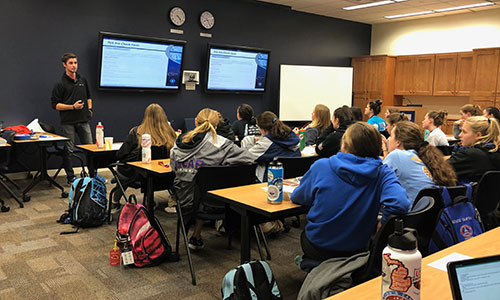
Education is an extremely important pillar of an effective anti-doping program and is the first line of defense in protecting the rights of clean athletes. USADA provides extensive anti-doping education to thousands of athletes each year focused on helping athletes and support personnel understand their rights and responsibilities in regards to the drug testing process. Topics of discussion during an education session could include: prohibited substances; Whereabouts requirements; the sample collection process; dietary supplement awareness; Therapeutic Use Exemptions; and results management information.
USADA delivers its anti-doping education and athlete resources in a number of ways. USADA routinely provides in-person education training and presentations; conducts webinars for general and select audiences; provides online, interactive tutorials; and produces numerous brochures, pamphlets, packets, and online education resources.
Science
 Science plays a crucial role in the fight for clean competition, and USADA’s expert scientists are leaders in the global anti-doping community. USADA’s science team has an especially significant impact on research and scientific advancement related to methods and practices for detecting and deterring the use of performance-enhancing drugs in sport. Between 2001-2009, USADA budgeted $2 million per year to support research on anabolic steroids, growth hormone, oxygen transport-enhancing substances, genetic doping, ethics, and other important topics. Today, anti-doping research efforts and resources are pooled and led by the Partnership for Clean Competition (PCC), a non-profit collaborative founded in 2008 by the U.S. Anti-Doping Agency, the U.S. Olympic & Paralympic Committee, the National Football League, and Major League Baseball.
Science plays a crucial role in the fight for clean competition, and USADA’s expert scientists are leaders in the global anti-doping community. USADA’s science team has an especially significant impact on research and scientific advancement related to methods and practices for detecting and deterring the use of performance-enhancing drugs in sport. Between 2001-2009, USADA budgeted $2 million per year to support research on anabolic steroids, growth hormone, oxygen transport-enhancing substances, genetic doping, ethics, and other important topics. Today, anti-doping research efforts and resources are pooled and led by the Partnership for Clean Competition (PCC), a non-profit collaborative founded in 2008 by the U.S. Anti-Doping Agency, the U.S. Olympic & Paralympic Committee, the National Football League, and Major League Baseball.
In addition to leading the advancement of anti-doping science, USADA has hosted the annual USADA Symposium on Anti-Doping Science since 2002, which brings together anti-doping experts from around the world to inform and shape meaningful anti-doping research programs for the future. The Symposium enables attendees to keep up-to-date with the latest research and scientific developments in anti-doping, while also providing them with a unique opportunity to meet with peers and colleagues in their field.
Drug Reference
USADA makes available a number of drug reference resources for athletes, beyond general education, that can assist athletes and their support personnel with substance-related questions. USADA’s team of scientists, pharmacists, and supplement advisers have the experience and expertise to assist with questions on prohibited medications, Therapeutics Use Exemptions, and dietary supplements.
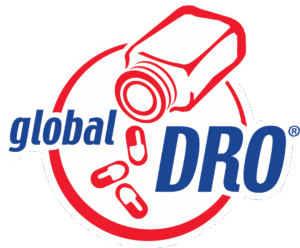
Global DRO®: The Global Drug Reference Online, or Global DRO, allows athletes, parents, coaches, support personnel, or any member of the public to search for the “prohibited” or “not prohibited” status of medications, including specific and generic brand names or individual ingredients. Global DRO is also sport specific, meaning that it indicates which substances are prohibited only in certain sports. Global DRO was created through a partnership between the Canadian Centre for Ethics in Sport (CCES), UK Anti-Doping (UKAD), and the U.S. Anti-Doping Agency. The Japan Anti-Doping Agency (JADA), Sport Integrity Australia, Anti-Doping Switzerland (ADCH), and Drug-Free Sport New Zealand (DFSNZ) have since become official Global DRO licensees. To visit Global DRO, please click here.
Drug Reference Phone Line: USADA’s drug reference service allows athletes and support personnel to speak with an expert about topics related to medications and prohibited substances. USADA’s drug reference phone line is staffed during business hours, Monday-Friday, 8 a.m.-5 p.m. MST. For more information about USADA’s drug reference phone line, please click here.
 Supplement Connect is among the most comprehensive educational resources for athletes, their support staff, and general consumers regarding the safety of dietary supplement products. The use of dietary supplements can pose both a health risk and an anti-doping risk, as there have been positive anti-doping tests linked to the use of dietary supplement products around the world. Supplement Connect helps athletes understand the risks associated with dietary supplement products and educates athletes on what they can do to reduce that risk as much as possible. Additionally, the Supplement Connect High Risk List provides a list of dietary supplement products that have a high risk of containing prohibited substances, including many products that USADA has tested and found to contain prohibited substances. To visit Supplement Connect, please click here.
Supplement Connect is among the most comprehensive educational resources for athletes, their support staff, and general consumers regarding the safety of dietary supplement products. The use of dietary supplements can pose both a health risk and an anti-doping risk, as there have been positive anti-doping tests linked to the use of dietary supplement products around the world. Supplement Connect helps athletes understand the risks associated with dietary supplement products and educates athletes on what they can do to reduce that risk as much as possible. Additionally, the Supplement Connect High Risk List provides a list of dietary supplement products that have a high risk of containing prohibited substances, including many products that USADA has tested and found to contain prohibited substances. To visit Supplement Connect, please click here.Therapeutic Use Exemptions (TUEs)
When an athlete has a legitimate medical need to use a prohibited substance or method, they can apply for a Therapeutic Use Exemption (TUE). USADA’s TUE application process is compliant with both the World Anti-Doping Code and the World Anti-Doping Agency’s (WADA) International Standard for Therapeutic Use Exemptions.
USADA’s TUE application process is designed to be as simple as possible for athletes, but a thorough evaluation is conducted in accordance with international rules to ensure that athletes with TUEs don’t experience performance-enhancing benefits. An athlete’s medical documentation and diagnosis is evaluated during the TUE application process. USADA’s TUE Policy, along with WADA’s International Standard for Therapeutic Use Exemptions, balances the necessity for athletes to have access to important medication with the need to protect a level playing field.
Sample Collection & Analysis
Fully committed to ensuring a safe and secure sample collection experience for athletes, USADA’s sample collection processes are fully compliant with the World Anti-Doping Code and International Standard for Testing and Investigations. Athletes may have blood, dried blood spot, urine, and/or other WADA-approved samples collected at an event (in-competition testing) or at another location (out-of-competition testing.)
Test Distribution Planning (TDP): Through the TDP process for both in- and out-of-competition testing, USADA works collaboratively with a number of entities to determine:
How many tests will be collected
Which athletes will be tested
When testing occurs
If urine, blood, and/or dried blood spot will be collected
What special analysis may need to be performed on the samples
Doping Control Officers: USADA has more than 60 highly trained Doping Control Officers (DCOs) stationed throughout the world. Our DCOs are employees of USADA and receive extensive training and evaluation on in-competition and out-of-competition testing.
Event Management: USADA’s office staff and DCOs will work directly with event organizers to ensure the sample collection process runs smoothly at an event by securing a proper doping control station, providing necessary materials for athletes, and ensuring any necessary personnel or volunteers are available.
Sample Collection: In accordance with the World Anti-Doping Code and International Standard for Testing and Investigations, USADA’s DCOs obtain samples from athletes and work with a trained phlebotomist for blood draws, when necessary. USADA’s DCOs are trained on all aspects of the sample collection process, including best practices for unique situations and modifications for impaired and minor athletes. DCOs also help athletes properly complete all paperwork. Find more information here: Sample Collection Process information.
Sample Management & Analysis: USADA’s DCOs ensure accurate and prompt shipment of samples to a WADA-accredited laboratory, ensuring that the integrity of the sample is maintained and the proper chain of custody is recorded. All athlete samples are analyzed at laboratories accredited by the World Anti-Doping Agency (WADA), not by USADA, which ensures an additional level of independence and objectivity in determining the results of an athlete’s sample. All lab results are sent to USADA by the lab, as well as uploaded directly to the WADA Anti-Doping Administration & Management System (ADAMS). All WADA laboratories adhere to the WADA International Standard for Laboratories.
In the United States, there are two WADA-accredited laboratories: the UCLA Olympic Analytical Laboratory in Los Angeles, California, and the Sports Medicine Research and Testing Laboratory (SMRTL) in Salt Lake City, Utah.
For more information on WADA-accredited laboratories and sample analysis please, click here.
Results Management
In compliance with the World Anti-Doping Code and relevant international standards, USADA is charged with handling the results management and adjudication process for U.S. athletes in Olympic, Paralympic, Pan American, and Parapan American sport. This independence removes the inherent conflict of interest associated with sport organizations trying to both promote and police their sports. USADA’s process affords a full and fair legal process to athletes and other sport personnel, including access to the Court of Arbitration for Sport (CAS) arbitrators in determining violations.
As a WADA Code signatory, sanctions issued by USADA, or independent CAS arbitration panels, are recognized by the more than 600 sport governing bodies and organizations that are also signatories to the WADA Code.
Click here for more information.
TrueSport

Powered by the experience and values of USADA, TrueSport inspires athletes, coaches, parents, and administrators to change the culture of youth sport through cornerstone lessons of sportsmanship, character building & life skills, and clean & healthy performance, by creating leaders across communities through sport.
TrueSport’s mission is:
To change the culture of youth sport by providing powerful educational tools to equip young athletes with the life skills and core values for lasting success on and off the field.
Contract Testing
As the national anti-doping agency for U.S. Olympic, Paralympic, Pan American, and Parapan American sports, the U.S. Anti-Doping Agency (USADA) is equipped and prepared to assist any organization in promoting clean competition. USADA is a signatory to the World Anti-Doping Code (the Code) and fully complies with the Code’s International Standards. Our anti-doping services are based on comprehensive policies and procedures and executed by trained staff, qualified Doping Control Officers, and specialized Blood Collection Officers. We welcome the opportunity to work with those interested in standing with athletes to champion their right to clean sport and promoting the integrity of sport.
USADA Frequently Asked Questions
Click on the question to drop down the answer.
What is USADA?
The United States Anti-Doping Agency (USADA) is the national anti-doping organization (NADO) for Olympic, Paralympic, Pan American, and Parapan American sports in the United States. USADA’s mission is to champion athletes to achieve their dreams in a fair and healthy way and to inspire the world.
USADA is responsible for administering all the components of the anti-doping program, including the testing and results management processes, for all United States Olympic & Paralympic Committee (USOPC)-recognized sport National Governing Bodies (NGBs) and their athletes, as well as events. In addition, USADA is responsible for athlete education, drug reference resources, Therapeutic Use Exemptions, and scientific research initiatives.
USADA is an independent, nonprofit organization. It is not a branch or office of the federal government.
How and why does USADA exist?
USADA was created as the result of recommendations made by the United States Olympic & Paralympic Committee’s Select Task Force on Externalization. Prior to USADA’s founding in October 2000, management of the anti-doping program for Olympic and Paralympic sport was handled internally by the USOPC. The USOPC took the important step to externalize the anti-doping program, and USADA’s creation as a separate and independent anti-doping entity is largely unique in major American sport. USADA was established to remove the inherent conflict of interest that results from an organization being charged with both promoting and policing a sport.
How can I contact USADA?
USADA is located in Colorado Springs, Colorado, and operates in the Mountain Time Zone. USADA’s main telephone number is (719) 785-2000, and our toll-free telephone number is (866) 601-2632. USADA’s main fax number is (719) 785-2001. USADA’s general email address is USADA@USADA.org.
Athletes and their support personnel can contact USADA’s Athlete Connect resource by calling (719) 785-2000 or emailing AthleteConnect@USADA.org. Our mailing address is 5555 Tech Center Drive, Suite 200, Colorado Springs, CO 80919-2372. For more ways to contact us, please click here.
For whom does USADA have testing and results management authority?
The USOPC, USOPC-recognized National Governing Bodies for sport (NGBs), and the World Anti-Doping Agency (WADA) Code have authorized USADA to test and adjudicate anti-doping rule violations for any athlete who:
- Is a member or license holder of, or under contract with, a National Governing Body or sports organization for whom USADA is authorized to conduct any aspect of Doping Control;
- Is a member of, or the recipient of a license from, an International Federation (IF) or other WADA Code Signatory or a member of a Signatory;
- Participates in sport, including by registering or preparing for or participating in an Event or Competition in the United States or which is organized or sanctioned by the USOPC, an NGB, or a sport organization for whom USADA is authorized to conduct any aspect of Doping Control;
- Applies for (including participating in any qualifying Event or other step in the selection process), or is selected to, a U.S. national, Olympic, Paralympic, Pan American, Parapan American, Youth Olympic team, or other team representing the USOPC or NGB in an International Event;
- Applies for a change of sport nationality to the United States;
- Is present in the United States;
- Receives benefits from the USOPC or NGB;
- Registers for or uses any USOPC training center, training site, or other facility;
- Gives their consent to Testing by USADA;
- Is a U.S. Athlete and submits, or is required to submit, a Whereabouts Filing to USADA or an IF within the previous twelve (12) months and has not given his or her IF, NGB, and USADA written notice of retirement;
- Is included in the USADA Registered Testing Pool (RTP), the USADA Clean Athlete Program (CAP), or the USADA Education Pool (EP);
- Is present in the United States, or has been previously sanctioned by USADA for an anti-doping rule violation, and is serving a period of Ineligibility on account of an anti-doping rule violation and who has not given prior written notice of retirement from all sanctioned Competitions to the applicable IF, NGB, and USADA, or the applicable foreign anti-doping agency or foreign sport association;
- Is subject to Testing under authorization from the USOPC, NGB, IF, any NADO, WADA, the IOC, the IPC, any other Anti-Doping Organization (ADO), any other sports organization, or the organizing committee of any Event or Competition; and
- USADA is entitled to test under the rules of any ADO or sports organization.
Capitalized words in the list above refer to defined terms in the World Anti-Doping Code and the USADA Protocol for Olympic and Paralympic Movement Testing.
USADA does testing for IFs, other NADOs, and the World Anti-Doping Agency. USADA does not oversee testing at the Olympic and Paralympic Games, but our staff may be present at the Games to test on behalf of the Testing Authority. The Local Organizing Committee for the Games and WADA oversee testing at the Games.
Is USADA responsible for testing American collegiate NCAA athletes or professional sport leagues like the NFL, NHL, MLB, or NBA?
Generally not. Most professional sports leagues and the NCAA are not WADA Code signatories, and they conduct their own anti-doping programs in-house. Professional and collegiate athletes who also participate in Olympic sports (e.g. basketball, hockey), however, are subject to USADA testing in the lead up to the Games or World Championship. USADA is responsible for the testing program and results management for athletes in Olympic, Paralympic, Pan American, and Parapan American sport. Please see the previous question to understand what constitutes Olympic, Paralympic, Pan American, and Parapan American sport. USADA also conducts testing by contract for sports and/or events that fall outside this group, such as professional boxing, dance, and Brazilian Jiu-Jitsu.
What are some of the education programs available through USADA?
USADA’s education programs provide athletes, coaches, and other interested individuals valuable information on anti-doping matters, including sample collection policies and procedures, prohibited substances, Therapeutic Use Exemptions, Whereabouts requirements, athlete responsibilities, nutrition, dietary supplements, and other related topics. Additionally, USADA powers TrueSport, a movement working to create a positive youth sport experience through lessons on Clean & Healthy Performance, Sportsmanship, and Character Building & Life Skills.

WADA Code and International Standards
The U.S. Anti-Doping Agency is a signatory to the World Anti-Doping Code, which, along with the Prohibited List and the International Standards, are created and maintained by the World Anti-Doping Agency (WADA) in order to harmonize anti-doping efforts around the world across all sports. The international anti-doping community, including WADA and all of the Code-Signatories, have completed a full review and revision of the 2015 World Anti-Doping Code, and as a result of this review and revision, on January 1, 2021, a new World Anti-Doping Code took effect. USADA was an active participant in the Code review, submitting comments and feedback, and sharing our expertise and experience throughout the process. Learn more about the 2021 Code changes.
WADA Frequently Asked Questions
Click on the question to drop down the answer.
What is the Code?
The Code is a core document that provides the framework for anti-doping policies, rules, and regulations within sport organizations and among public authorities. It is designed to harmonize anti-doping policies and ensure the standards are the same for all athletes. The Code works in conjunction with eight international standards that provide further rules which govern anti-doping efforts.
What are the eight international standards?
International Standard for Code Compliance by Signatories
The International Standard for Code Compliance by Signatories (ISCCS) sets out to ensure that strong, Code-compliant anti-doping rules and programs are applied and enforced consistently and effectively across all sports and all countries, so that clean athletes can have confidence that they are competing on a level playing field, and the public has confidence in the integrity of sport.
The Prohibited List
The WADA Prohibited List outlines the substances and methods prohibited in sport.
International Standard for Testing & Investigations
Testing is an extremely crucial piece of any anti-doping program. The purpose of the International Standard for Testing & Investigations (ISTI) is to plan for effective testing and to maintain the integrity and identity of samples, from notifying the athlete to transporting samples for analysis.
International Standard for Therapeutic Use Exemptions
The purpose of the International Standard for Therapeutic Use Exemptions (ISTUE) is to harmonize the process of granting TUEs across sports and countries. The WADA TUE process ensures athletes can get access to important medication when appropriate while ensuring clean athletes have access to a level playing field.
International Standard for Laboratories
The purpose of the International Standard for Laboratories (ISL) is to ensure production of valid test results and evidentiary data and to achieve uniform and harmonized results and reporting from all accredited laboratories. Anti-doping organizations that are signatories to the Code agree to have all samples analyzed at WADA-accredited labs.
International Standard for Protection of Privacy and Personal Information
The purpose of the International Standard for the Protection of Privacy and Personal Information (ISPPPI) is to ensure that all relevant parties involved in anti-doping in sport adhere to a set of minimum privacy protections when collecting and using athlete personal information, such as information relating to Whereabouts, doping controls, and Therapeutic Use Exemptions.
International Standard for Education
The purpose of the International Standard for Education is to support the preservation of the spirit of sport as outlined in the Code and to help foster a clean sport environment. It is recognized that the vast majority of athletes wish to compete clean, have no intention to use prohibited substances or methods and have the right to a level playing field.
International Standard for Results Management
The purpose of the International Standard for Results Management is to set out the core responsibilities of Anti-Doping Organizations with respect to results management. In addition to describing certain general principles of results management, this International Standard also sets out the core obligations applicable to the various phases of results management, from the initial review and notification of potential anti-doping rule violations, through provisional suspensions, the assertion of anti-doping rule violations and proposal of consequences, the hearing process until the issuance and notification of the decision and appeal.
What is a World Anti-Doping Code signatory?
The term “World Anti-Doping Code signatory” refers to an organization that has fully accepted the Code and accompanying International Standards. All Code signatories are listed on WADA’s website here.
Code acceptance means that a sport organization agrees to the principles of the Code and agrees to implement and comply with the Code.
Once a sport organization accepts the Code, it then needs to implement it. Code implementation means that a sport organization amends its rules and policies to include the mandatory articles and principles of the Code.
Finally, enforcement refers to the sport organization actually enforcing its amended rules and policies in accordance with the Code.
WADA monitors implementation of and compliance with the Code.
When did USADA adopt the World Anti-Doping Code?
The World Anti-Doping Agency announced USADA as one of the first organizations to formally adopt the World Anti-Doping Code on April 7, 2003.
How many World Anti-Doping Code signatories are there?
To date, more than 660 sport organizations, including the International Olympic Committee (IOC), the International Paralympic Committee (IPC), all Olympic Sport International Federations (IFs) and all IOC-recognized IFs, National Olympic and Paralympic Committees, National Anti-Doping Organizations, and many other sport organizations have accepted the World Anti-Doping Code.
In the United States, most major professional sport leagues are not signatories to the World Anti-Doping Code.
When did the latest version of the Code go into effect?
The U.S. Anti-Doping Agency is a signatory to the World Anti-Doping Code, which, along with the Prohibited List and the International Standards, are created and maintained by the World Anti-Doping Agency (WADA) in order to harmonize anti-doping efforts around the world across all sports. The international anti-doping community, including WADA and all of the Code-Signatories, have completed a full review and revision of the 2015 World Anti-Doping Code, and as a result of this review and revision, on January 1, 2021, a new World Anti-Doping Code took effect. USADA was an active participant in the Code review, submitting comments and feedback, and sharing our expertise and experience throughout the process. Learn more about the 2021 Code changes.
Find the Resources you Need
WADA Code and International Standards
Click the red arrows to scroll through all WADA publications.
Why Clean Competition Matters
Real Athletes. Real Stories. Real Integrity.
Our core values are a fair and level playing field for all athletes. And one of the things when we first created Powerlifting America is that I share with my athletes that you will be subject to testing 365 days out of the year, 24 hours a day, seven days a week. It’s not been an easy journey, but, you know, the outcomes so far has been great for us and our athletes and our organization and the sport of Powerlifting America.
The idea of coming by a win or a victory by taking a shortcut or cheating, just at a very basic level seems wrong. If I did win in that way, I know I would always believe that it was illegitimate.
Whatever sport you’re in, talk about competing the right way. It’s not all about winning. It’s about giving it your very best effort, because you can’t control if you win. You might crash, you might fall, someone else might just be better, and that’s okay…but it’s not okay to cheat to win. At the end of the day, you want to leave sport being proud of what you did.
You don’t become an Olympic athlete and just want to be okay, or in the middle, or see people who have cheated get the glory that you worked so hard for. A level playing field is really important…and knowing your rights as they relate to that level playing field. I wouldn’t participate in sport if I thought that it was massively unfair from an anti-doping standpoint.
Clean athletes have to be able to trust that their rights are being protected and that everything is being done to ensure a level playing field.
A truly effective anti-doping program combines the latest research and technology to prevent and deter performance-enhancing drug use.
Organizational Documents
Download Documents
Access important documents that outline USADA’s governance, financial stewardship, and nonprofit status.

